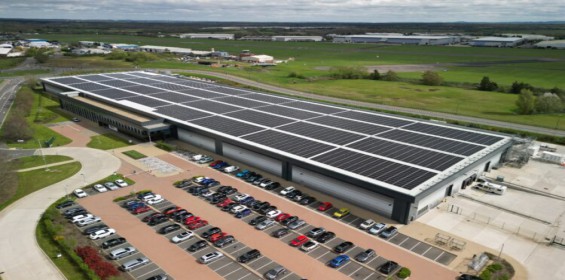Small and medium sized (SME) battery developers from across the UK are to benefit from £1.5m in funding from the Faraday Battery Challenge (FBC), delivered by Innovate UK, to be spent on innovative battery manufacturing, demonstration, scale-up, and recycling projects.
The winners, which will each be given the chance to scale-up their projects at the UK Battery Industrialisation Centre (UKBIC), funded by FBC, were announced at the annual Battery Cells and Systems Expo, at the National Exhibition Centre in Birmingham on 15th – 16th May.
The companies will use the funding to support a range of scale-up journeys – from technological potential towards commercial capability. The funding will support cylindrical and pouch cell technologies, and will bring advanced Lithium Titanate Oxide (LTO) battery technology and a new Cathode Active Material (CAM) to the UK for the first time.
The successful companies were awarded the funding through the £610m FBC, which is delivering a research and innovation programme that covers "Lab to Factory" development, cutting-edge research, national scale-up infrastructure, and skills and training.
The winners are:
• Altilium – Plans to demonstrate manufacturing of battery cells at-scale using sustainable, low-carbon cathode active materials (CAM) from recycled end-of-life EV batteries from Altilium’s UK-based pilot CAM plant and EV battery recycling innovation centre in Plymouth;
• Nyobolt – Is commercialising ultra-fast charging, high power battery technologies for applications ranging from industrial to automotive and heavy duty off-highway. Nyobolt will build on experience gained during previous activity at UKBIC to optimise the quality and speed of manufacturing Nyobolt's electrode material at giga-scale;
• Snapfast – The project will see Snapfast and Grinergy from South Korea transfer advanced LTO technology for pouch cell manufacturing to the UK. LTO batteries are long lasting, with up to 90% of the batteries recycled, do not suffer from thermal runaway, and are stable across a wide range of temperatures (-30°C to 60°C); and
• Volklec – Plans to develop and manufacture a 21700 cylindrical battery cells to meet the demands of the UK’s automotive market, in particular the diverse array of small volume and/or niche vehicle manufacturers. The cell development includes the introduction of a new CAM to the UK.
Tony Harper, Challenge Director for the FBC said: “For the UK to fully prosper from the transition to electrification, we need to bring a range of battery technology through to industrial scale. These projects represent a great combination of outstanding home-grown solutions and the selective commercialisation of technology and materials from overseas where it benefits the UK. In supporting these organisations in their work at the UK Battery Industrialisation Centre, this funding will help demonstrate these innovations at industrial scale and rate proving value to customers and investors.”
Sean Gilgunn, Managing Director, UKBIC, added: “We’re delighted that the Faraday Battery Challenge is once again supporting home-grown battery developers by offering funding for access to UKBIC and we firmly believe this scheme is critical to the development of UK electrification. A facility with capabilities which are constantly evolving, UKBIC is installing a new line to help bridge the gap between our existing scale-up line and kilogramme scale demonstrator lines already available elsewhere. These new capabilities will ensure we can benefit battery developers at all stages of their scale-up journeys.”
This latest funding builds on the SME Credit 1 competition in 2023, which saw Nyobolt and Addionics working with UKBIC to scale up their battery technologies in the facility in Coventry.
https://www.linkedin.com/company/innovateuk/

